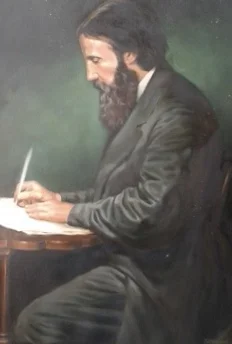The Cullen Collection is a 37-volume complete paperback and eBook set of all George MacDonald’s full-length fiction and fantasy works—the only such complete matching paperback and eBook series ever produced.
Paul Faber, Surgeon
“Faber represents the classic example of a “good” man by appearance, more kindly and compassionate and loving than many so-called Christians. He perceives within himself no need for God. Yet his very goodness is his downfall. For its darker side reveals a fierce pride which, as the story unfolds, illuminates the spiritual and even moral bankruptcy of mere external goodness…”
The Elect Lady
“Brief and simple as it might seem, The Elect Lady stands out as vividly portraying that young people can know and obey God no less because they are young. The memorable pact between Dawtie, Sandy, and Andrew to be good children, and to ask what God wanted them to do, gives two remarkable images (Sandy drops out of the story as it progresses) that stand among MacDonald’s formidable fictional creations…”
Mary Marston
“In Mary Marston, like Paul Faber Surgeon from two years earlier, we find ourselves in the midst of another “extended sower parable.” In both books, MacDonald allows us to witness a broad range of human responses to truth—from those characters in whom the seed strikes no root, to those in whom it is choked out by worldly cares, to those Satan has in his grasp, to those others whose soil is rich and in whom God’s priorities flourish. ..
At the Back of the North Wind
“Two recurring themes reappear from Phantastes as foundational to North Wind’s story—the dream motif, and the all-wise woman-figure. MacDonald will return to both again and again. Now, however, the series of enigmatic mystical episodes of Anodos’s adventures (whose ultimate meaning remains obscure) is scaled down into a so-called “children’s story,” and is thus far easier to read and understand (though the flavor of mysticism remains)…
Alec Forbes of Howglen, The Princess and the Goblin, and The Portent
“If MacDonald was going to make it as a novelist, he had to show that he could do it again. He had to prove that the success of David Elginbrod—as a major work of fiction—wasn’t just a one-off. The critics, it might be said, were getting restless.
“As 1865 dawned, therefore, much was on the line. MacDonald had to demonstrate that he hadn’t just been lucky, but that he could keep writing novels that would sell, that people would read, and that the ambivalent critics would rave about.
“And that’s exactly what he did. This was the book that proved it…”








